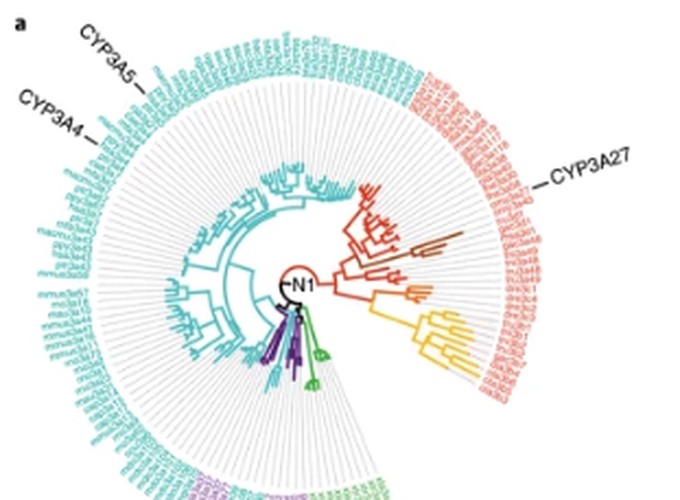

Commercial biocatalysis requires robust enzymes that can withstand elevated temperatures and long incubations. Ancestral reconstruction has shown that pre-Cambrian enzymes were often much more thermostable than extant forms. Here, we resurrect ancestral enzymes that withstand ~30 °C higher temperatures and ≥100 times longer incubations than their extant forms. This is demonstrated on animal cytochromes P450 that stereo- and regioselectively functionalize unactivated C–H bonds for the synthesis of valuable chemicals, and bacterial ketol-acid reductoisomerases that are used to make butanol-based biofuels. The vertebrate CYP3 P450 ancestor showed a 60T50 of 66 °C and enhanced solvent tolerance compared with the human drug-metabolizing CYP3A4, yet comparable activity towards a similarly broad range of substrates. The ancestral ketol-acid reductoisomerase showed an eight-fold higher specific activity than the cognate Escherichia coli form at 25 °C, which increased 3.5-fold at 50 °C. Thus, thermostable proteins can be devised using sequence data alone from even recent ancestors.